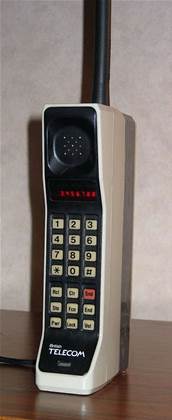The company that introduced the first commercial mobile phone in 1973, Motorola, is staring at job cuts under new parent company Google.

New York Times reported plans by the Google subsidiary to slash staff by 20 percent, or approximately 4000 jobs. A third of the jobs lost would be in the United States, the rest overseas.
There are also plans to close a third of Motorola's 94 global offices worldwide.
Google Australia would not say how many jobs will go locally or whether Motorola offices in Queensland, Victoria or New Zealand might close.
However, the New York Times reported shrinking operations at Motorola's Asia and India businesses, as research and development is moved to the US and China.
The number of vice presidents in Motorola's management has also been cut by 40 percent.
Motorola's mobile phones business has been unprofitable for 14 of the last 16 quarters as it struggles to compete with the likes of Apple and Samsung.
"Motorola understands how hard these changes will be for the employees concerned and is committed to helping them through this difficult transition," the company said in a filing to the Securities and Exchange Commission.
"Motorola will be providing generous severance packages, as well as outplacement services to help the employees find new jobs."
The job cuts would cost Google approximately $US275 million.
Google bought Motorola's mobile phone business in May this year for $US12.5 billion. The acquisition was largely thought to involve the phone maker's 17,000 patents, some of which touch upon Google's Android mobile operating system.
But the search engine giant also plans to make use of Motorola to manufacture smartphones and tablets.
Google has installed its former American sales operations chief, Dennis Woodside, as chief executive at the phone maker to revive the company.
Woodside reportedly wants to cut the number of devices made by Motorola and work on making its products more attractive through refined sensor and imaging technology, and generally focus on research and development.
However, Google faces suspicion from its present Android mobile device partners including Samsung, HTC, LG, Sony and Huawei as to whether or not it will favour Motorola ahead of them, despite promises to the latter by the search giant.




_(33).jpg&h=140&w=231&c=1&s=0)






 iTnews Executive Retreat - Security Leaders Edition
iTnews Executive Retreat - Security Leaders Edition
 iTnews Cloud Covered Breakfast Summit
iTnews Cloud Covered Breakfast Summit
 Melbourne Cloud & Datacenter Convention 2026
Melbourne Cloud & Datacenter Convention 2026
 The 2026 iAwards
The 2026 iAwards











_(1).jpg&h=140&w=231&c=1&s=0)



